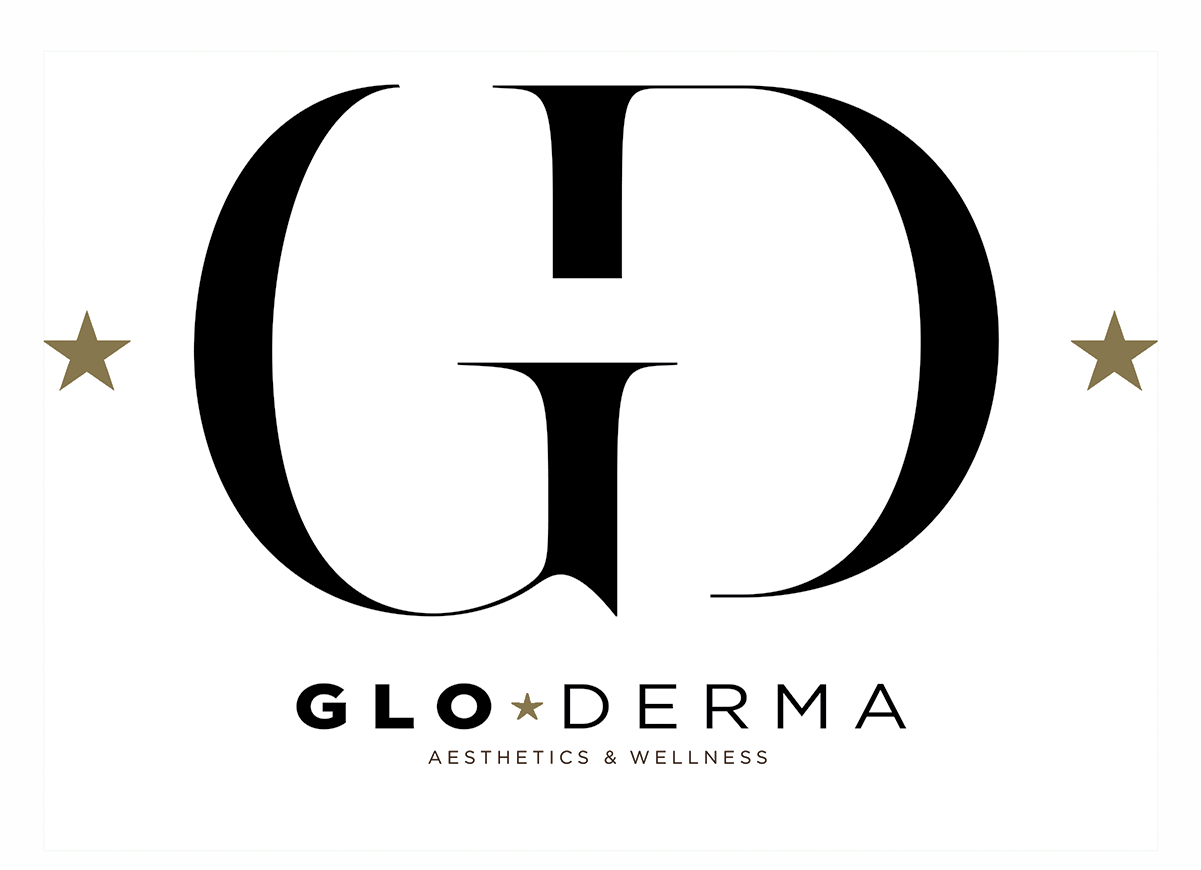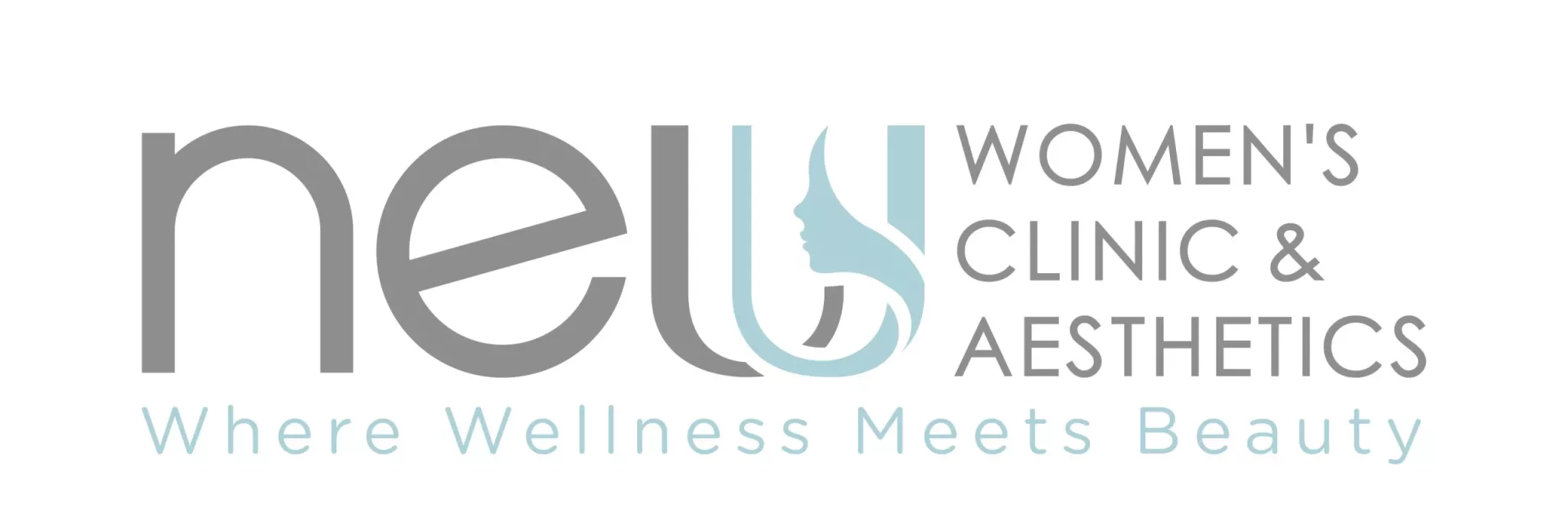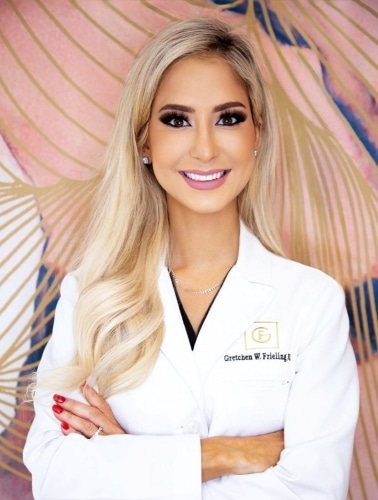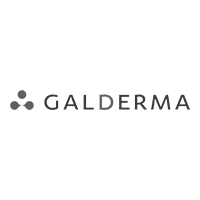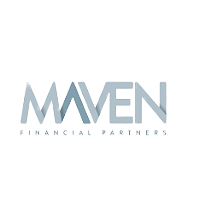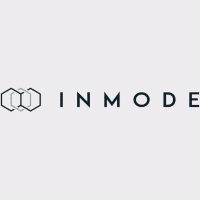https://podcasts.apple.com/us/podcast/64-irnise-your-nurse-lawyer/id1549585189?i=1000580892353

Introduction – This is medical, millionaire the podcast. Helping your Med Spa increase in status visibility and profitability. Join your host. Is he dispels miss shares, Trends and gives you actionable steps today that will take your medical practice to the next level. Here’s your host expert marketer and founder of Growth99, Cameron Hemphill
Cameron Hemphill – Hey, everybody Cameron’s epic. Go here are your hosts for medical millionaire? Hey, first off, thank you so much for taking the time to tune in to our podcast. Our goal is to give incredible value and insight into the medical spa market. So if your injector you’re in the medical aesthetic space, Dermatology space plastic surgery, space even Dental Cosmetics. This podcast is designed for you.
And so throughout this journey together, our goal is to help you take your practice to the next level. So wherever you’re at, wherever you’re at within your journey. We want to help you within your business. Your Current financial standpoint, whatever tool is you’re looking to invest in and really just position you guys for success. And so I’m super excited today. We actually have a guest on today and I love doing these interviews and I actually have the opportunity to sit next to this amazing. Easing, talented, beautiful woman at the latest aesthetic. Next conference that we are at. We’re on a panel got to know each other and said, hey, you know, I would really like to have you on the medical man are podcast and so everybody, I want to introduce you to her niece. Who is Let’s see I totally just check messed up there. I got to start over. Sorry. No problem.
I can my screen froze. Hey everybody Cameron Hemphill here your host for medical millionaire. Hey first off, thank you so much for taking the time to tune into our podcast. Our goal is a given incredible value and insight into the medical spa market. So if you’re an injector you’re the medical aesthetic space cosmetic space plastic Sturm anything to do with aesthetics. This podcast is for you. We’ve consulted with thousands of providers across shoot the world now and we we hear experiences. Um, we hear practices that are doing very well. We hear practices that that always need help and trying to position themselves to take their practice to the next level. And so today I actually have a guest on the show. Um a individual that I actually had the opportunity to meet with at the latest aesthetic next conference in Dallas and we were on a panel together And I was actually, I was, I was blown away by her level of intelligence, her very unique, understanding of what it takes to to be within compliance of the medical Esthetics market. And, you know, I did some research before getting to know her and have the opportunity to meet with her, but it was, it’s interesting. So I have our nice Williams with us. Her Instagram is your nurse Lawyer. So everybody make sure to go follow her. She is a nurse. Are you a nurse practitioner, right?
Irnise- No, just no just the nurses.
Cameron Hemphill– But but you have a very unique I would say skill set because you have a very expensive. Nursing background. Yeah. And you’re an attorney. Uh-huh. I don’t know. How many of those are out there now,
Irnise-– live. There, there are a few nurse attorneys. I didn’t know of any. When I first went to law school, met a few in DC and then over the past few years I’ve met a few online so there are a few of us out there but they’re very few and far between.
Cameron Hemphill– Yeah I mean it’s it’s I guess it’s rare. And like what’s cool about it is you have an opportunity to give so much value to this specific specialized vertical? Right.
Irnise-– Yeah. So, you know, becoming a nurse or something. I was always passionate about, but I understood once I got into practice that it’s so hard to actually help when people are already so sick. And so I decided to go back to law school because I wanted to have a bigger impact, and the Affordable Care Act was supposed to say.
Yeah, Shannon changed the world and make health care so much better. But now, of course things aren’t as as good as we thought they would be just due to all the regulations and the changes and the pandemic. And so is being a nurse in the years of experience that I’ve had working in hospice and a federally qualified health care center in ah in New York work working in the operating room. You see the impact of what health care means to people, right? I think when I went to law school, I just thought about health care and a silo versus understanding that health care is dependent on the prison system, right on the justice system on the housing system on the food industry. Like if any of those areas are impacted or an issue in your community, you can see how people’s health are their their health. It’s impacted and why health care disparities exist, which is isn’t what I really thought about in the beginning. It was just like if you’re sick, you need help, you come to help you get better. Like that’s how so
Minded. I was thinking because that’s how nursing school teaches you like, you are here to help the person who’s in front of you. And this is how you help them. Not understanding all of the other things that could potentially going to go on around them and in business. At the same thing you think I’m a clinician. I’m opening up in ascetic practice and I’m just going to serve the people in front of me, but you don’t think about the marketing. You don’t think about the regulations, you don’t think about all of the other things that goes into actually running the business and you have to become more of a systems thinker. So being a nurse in a lawyer because kind of allowed Me to marry all of the expertise and experiences with the systems thinking.
Cameron Hemphill– Wow. Yeah. That’s interesting. I mean, I’ve had those experiences as well like obviously in different verticals but you know you get you get into something because it’s like has a core belief value. Yeah. You know within society and then come to find out you’re like oh wow like this isn’t anything that And I thought it was right. Hmm. Okay, nothing. So, when did you position to like, okay, first off, how long were you a nurse? Are you still doing that?
Irnise-– Yeah, so I’ve been a nurse for 14 years. I just retired last year. Three years into my career. I know like, what is that? I’m 35. What’s going on? Where am I, 36? Maybe I’m 36 and so three years into my career. I decided to go back to school to become a lawyer. When I I graduated there weren’t many jobs right? I think the recession hit and never really recovered in the legal industry and maybe many any other Industries as well where they just weren’t hiring as many people. But yet more people are going to law school and there are just Less jobs that were available. So I wasn’t able to find a job and I’m like, okay, I’ve been broke for the last three years while I was in law school.
I don’t want to be broken anymore and I have this nursing license. Let me just go back to nursing for a little while longer bigger it out and then I will eventually become a full time lawyer. That was seven years ago. Um, and it took me that long to figure it out. I realised like nobody was going to hire me, right? One of the issues when you’re looking for a job and you have a you’re coming from a second, you know, this is your second career. They don’t want to pay you more because of your expertise, right? And you’re gonna come in with a different set of expectations versus someone who’s super green who’s ever worked anywhere who’s just excited to be there. Also, I have a lot of alone. And if you have a lotta student loans, you can’t work for starting agencies in the federal government if you don’t know that they will look at just a loan balance and think that you’re gonna sell information from the government to pay off your student loans. It’s interesting. I didn’t know that but that’s that’s why I don’t have a federal government job. So I started my own practice back in twenty seventeen. I was one personal injury and medical malpractice. I did not want to do that. To me is the same
Issue that I was having as a nurse right people already have problems and issues. You’re now just helping them kind of be compensated for the problems and issues that they have versus a prevention and then the pandemic happened, I lived in New York, hit us pretty hard. I worked in hospitals and realize like this is worse than I could have ever imagined. And I need to get out and I want to really help but I don’t want to necessarily leave Healthcare. So I decided to start working with nurses and nurse practitioners who were opening up businesses. And I really thought people were opening up more traditional businesses. I really didn’t even have any idea about the aesthetic world, but most of the people who are coming to understand like their practice or their scope of practice or regulations were coming from Aesthetics and so that kind of became my
Niche. And Specialty just simply based on me, positioning myself on social media, as this Healthcare expert, but now more Med spas and, and medical aesthetic. So it is definitely been a journey since I relaunch my practice in 2020, we’ve taken off with grown and it’s really great to see that more people are interested in protecting their practice by understanding, what compliance is in the regulations. But I think that we’re not talking about it enough because it’s more people, enter into the industry. We’re at greater risk. Risk of being heavily regulated because we’re not regulated as much as people think that we are because of the potential harm, that could happen to people who are caring for patients and they’re not well trained.
Cameron Hemphill– Shoot. I mean, that’s it’s gotta be. I mean, I guess it’s going be one hand. It’s exciting, you know, and there the other hand, I’m sure it’s super complex because you got different states. You get different regulations. Like I mean, how do you have you handle how do you handle that? And and obviously like this is a world that I think I read an article recently that there was seventy four hundred medical Spas last year this year already. There’s eighty seven hundred. I’m talking to United States. Yeah, like massive growth. Everybody wants to get into aesthetics are like, shoot, you have people that you have a Harrison loan. They want to serve do a Botox dentist to start doing it. And that made it, you know, plastic surgeons that they both on the the aesthetics practice nurse practitioners like a lot of people leaving the hospital, you know, like I’ve I talked to people all day long that are like, um, anaesthesiologists. Yeah. They just want to go
Irnise-– It’s everybody wants to do something, fun and easy and not to say that Aesthetics is easy, but easier than like, mentally, right? You are not necessarily pressured and stressed, when you’re doing a settings, this is a more energized. People are coming to you happy, you’re making people happy and so people are just looking for an outlet to still have that patient connection and that patient provider connection without necessarily the stress of trying to fix every single problem cause you’re not just fixing one, probably anesthetics, you’re fixing one problem. Right? Or a couple of small problems but in healthcare, and in a traditional Healthcare setting, you’re fixing the social issues. You’re fixing, you know, the physical issue, the mental issue, all of these things are kind of coming together with very few resources, so it’s difficult to actually get done. And so, the growth in the industry is very exciting, it right? It makes it for me, as a lawyer, a new territory because things are not as well defined as they are in other areas. So, it is exciting things being discussed and different
That we are creating but then that also leaves a lot of room for error. And there’s a lot of states that are now realizing wait, we left the door open way too much and a lot of different people not just clinicians that people who are trained but now I’m clinicians, were opening up practices and setting up businesses and had no cares about the regulations which could potentially either have cause harm or could potentially cause harm. So, yes, this industry is growing at a I mean a rate that I don’t think anybody would have thought about maybe five ten years. Years ago. And it’s not going to stop growing just because we add more regulations, but it may make it more difficult or more expensive for those who are actually practicing and doing things the right way.
Cameron Hemphill– Yeah, yeah. No, I agree. I mean. At the end of the day shoot there. There is risk, right? Um, and you have to know how to to mitigate that risk and have the right resources shoot that know how to help you mitigate that risk. Oh, yeah. So question for you, right? Um, we have a lot of people on in the tenant to our audience. I guess certain they come in three categories. They come into hey, I wanna get into this industry or hey, I I am in this industry. I’m looking to grow or I’m I’m in this industry on an Enterprise level and I’m gonna go to ten locations from from five or whatever nosy. That’s kind of the audience at two days. So as the one when someone’s getting like I got an idea. I’m gonna open up a a medical spa and it’s going to be anything
Like what risks do they have in? Like, how do you how do you help them? Mitigate those like what would you suggest?
Irnise-– Yeah. So for new practices, I always say before you go get the training and the coaching and all the other thousands of dollars of Investments that people may consider business, you need to understand the scope of practice in your state, right? And so you are asking like, how do I do that? I have a couple of clients that are in a lot of different states, so when you’re looking at regulations, the regulations are online. They’re available to anyone in any way I can look up the regulations, but you have to kind of And what they’re talking about, what they’re asking for and what’s required versus what’s mandated, right? Sometimes it’s suggested and then sometimes it’s absolutely a mandate that must be done. And so for my clients that are, you know, how the medical Direction client, who is National? We’re looking at every single state, all of the rules staying abreast on what’s changing and where it really starts at scope of practice. So who can do what?
How you can delegate to who write, can the position does a position have to be on-site or does the nurse practitioner have to be on-site who has access to the medications, if you’re in Nevada? They have some very, very, very specific rules about who has access to the medication. A nurse can’t have access to every medication, right? And so they can essentially own their own practice. They can’t work independently. They have to work under a provider who’s actually in the building. So understanding the scope of practice of what you can and can’t do. Gives you understanding about what you invested next. Because if you had if you have to have a provider on site that’s different verses you being independent in your able to work with the collaborating provider who’s you know, a few hundred miles away. It’s very different. And so the first thing you need to understand is your scope of practice. The first thing you need to understand is your scope of practice and then you want to also understand your state laws and then build your business around that once you set that up. Did I talk about the five key elements of compliance where you have job descriptions and on-boarding process. You make sure your contracts are in order. You make sure you have the appropriate training your website. It has the appropriate disclaimers and you have all the following all the federal regulations on that end. And then at the data privacy, I think a lot of people will get into the aesthetics industry and forget that you are still governed by hipaa. There are still requirements that you have to follow as a licensed provider. You have access to a ton of information that needs to be protected it. And so there’s some standards and regulations. So for those early business owners, you just want to understand what you can and can’t do what you shouldn’t should be doing which will save you a ton of money and building a practice that is specific to the things that you can do makes it easier and you’re less stressed because you’re not risking your license because you’re doing something that You’re not supposed to be doing and then for those who are already in, practice it in practice and growing, you want to make sure that your systems align with your policies and procedures which also aligns with the scope of practice and state law. So you want to make sure that if you’re bringing in someone new and they’ve never been an injector before that you have some type of training process that you’re sending them out for training that you’re doing all the things that need to be done to ensure that they’re competent because the issue is if you hire them, you allow them to inject someone And then they make a mistake in a patient, has a bad outcome. You then can be responsible because you’re the person that hired them, right? That is your employee or in people love to say, oh, they’re independent contractor. Everybody can’t be considered an independent contractor, your now growing. You now have to be responsible for people’s taxes and all of the different things that comes with being a business owner, so building, and growing comes with just a different level of responsibility, and a different level of expectation.
And then for those who are now in a prize of yaller, huge, you are in multiple locations, you have tons of employees. You want to make sure that everybody understands the standard so that the person who deviates from the standard it’s easily identifiable, and they can easily be escorted out the business because you don’t want someone to ruin your business and all of your locations have to shut down because someone has given someone access to your system and now they’ve stolen people’s protected health information. Operation. So when you have very clear standards that can be used across every single location, you are now in a position to say this person is a following the rules, excuse me, we’ve documented that multiple times. Now we need to terminate them because now you have an even greater responsibility because you have even more money that people can come after. So not only are you going to be really risking risking it on the legal medical compliance side. It’s also employment law.
You have to think about an injector coming in stealing your intellectual property starting a business just like yours. Those are the things that you’re kind of thinking about on the Enterprise level. And so it’s when you’re new you may not needful full-time where you don’t need to retain a lawyer. You may need to consult with the lawyer have them help you set things up get you the foundational tools and that mid level. You may have a compliance officer or lawyer that you’ve been called in touch base with azure grown. But when you’re on the Enterprise level, you need to have a lawyer who’s helping you deal with all of those issues because they’re gonna come up and you’re going to be overwhelmed with the financials with the hiring the firing with the systems with the you know, all the things that you have to do as a business owner plus now all of these employment issues that could potentially come up
Break Time- Thank you for listening to Medical millionaire. I wanted to take just a few short moments and tell you all about Growth99 University naturally. If you’re listening to Medical millionaire, the success of your Med Spa is extremely important to you and as it should be. And if you’re listening to Medical millionaire, you are obviously looking for the best most effective ways to take your meds spot to the next level in both profit and customer success. Enter Growth99 University ranging from online education courses, all the way to the full Suite of marketing and web services Growth99. Has your Med Spa covered. No matter the challenges that you’re facing we are ready and able to help you achieve your next level in business profit and freedom to inquire about all of our support services and products, please visit growth 99.com. And while you’re there, click the university link and check out the course, to this very podcast back to the show,
Cameron Hemphill– I mean what well said? It’s it’s interesting. Like as we hear you no honor. Because when we’re talking to you know to everybody that’s either in this space or getting into the space, some points I feel like they kind of go through like okay. I’m compliant checkbox. Hmm. You know because it’s like hey it’s not it’s like not a fun topic for these guys to. Yeah, right. Like it’s not but it when they start to grow, right? It’s A different. They need to. And I’m sure this is the advice that you definitely give is. They need to go back and review where they’re at now that they’ve grown, right. So how often I mean I guess that’s a hard question because someone could grow faster than others but maybe there’s a good rule of thumb or like it. A revenue point. I don’t know like or employee headcount. What do you have any um thought behind that?
Irnise-– So I tell people, you know as a business owner at minimum you want to be reviewing all of your system documents contracts at least annually because that’s where people usually mess up. They sigh sign a document. They thought a contract someone signed an agreement and then they never touch it again. But if you signed a business associate agreement with a vendor that you’re working with and now things have changed the rules have changed. You need to make sure that that’s updated that they’re very clear on what their expectations are and what your expectations are the same with your employee ease your employment agreements, even if you’re hiring independent contractors for some of the work that’s being done all of that needs to be updated at least annually to make sure the standards are clear people get comfortable because you are in relation, you know with these people you all are now have built this relationship your family are always together. So you’re not really thinking about
Acting you our business and making sure that they understand what your expectations are. But it’s when that one person decides to do something that could harm the practice, where all of a sudden you’re going through the paperwork, trying to figure out, did you, did they sign an NDA, did you? They signed a non-compete, did they, you know, all of these different things? Because now you’re in a situation where it now it’s an emergency compliance is the process of just following up, making sure that you’re following the rules to the best of your ability. That the rules that are there that you’re following those in the ones that you people love to say that there are gray or that you’re just not clear about that. You’re at least trying to mitigate those risks. So that if any issues do come up from the board Department of Health or whoever governs, you your your business, in your state that you’re prepared for the questions that they’re going to ask because they’re going to ask you, where did you find this person? Did you verify their license? How do you, how are you going to deal with someone actually using your NPI number right there? I know there was an issue one time.
People were sharing passwords, people were sharing, you know, login information, and someone use that NPI number two, right illegal prescription. How can you track that? How do you know who did it that has to be reported? Now, the person, whose NPI number DEA number was use, they are now responsible and have to report that themselves as well as now answer like how did this happen, right. Right. So you never want to put yourself in a position. Position where you are are so relaxed where you’re just expecting everybody to go with the flow, they know they know they’ve been working me for five years, of course they know. But something may happen that makes people, you know, unhappy and now they’re just trying to get back at you and they could potentially harm your business that you want to have things in place to avoid that from happening.
Cameron Hemphill– Yeah, that’s so true. Like you could take the quick route like hey, oh just logon credentials, right like yes, um any in it’s probably so easy again. Just text Tex in the log-in details and and you don’t you don’t really you know, you you should take a moment pause, you know sit back realised. Hey, you know what this is actually opening up EXP exposure. Yeah, I can I can easily just um, you know be resolved if they have conversation with somebody, you know, like you that you came through that process. So um question for you. What what do like the top like I don’t know. I guess three things that you see that are like Regular, you know, there’s gonna be like, oh yeah, like the most common things that you see that people could easily avoid.
Irnise-– avoid. So the first thing I think that I see all the time is people who are working with the medical provider or medical director and they’re not really communicating. So if your medical director doesn’t know your business, they don’t know what you’re doing. They don’t know how you’re doing it. They don’t know what type of training you receive, y’all May. Have signed an agreement but you don’t know when the last time it’s been updated. They’re not, you know, reviewing 10% of your charts or whatever is required in your state. That is usually what catches people up. So someone may file a complaint to the board and then they’re going to reach out to both you and your medical director and they’re going to say we want all of this information, if your medical director isn’t involved in your business and that’s at least know where those documents are. Y’all are now both scrambling and this medical directors. Like my license is attribution
Right? And now I’m trying to figure out how do I protect myself. Their goal isn’t going to be to protect you. When there’s an open level of communication and y’all are having the appropriate meetings, and y’all are had reviewed the appropriate documentation in that issue comes up. Y’all. You all know where to go to find that information, you sent the information and usually, it’s not as big of a deal when the board reaches out. They are sending a letter most times, maybe an email with a letter attached asking for some very specific things. If you provide those things in a timely manner, usually they’re not going to keep digging. It’s the people who don’t have the job descriptions who have employees and they don’t have employee files. They don’t know their background, they don’t have their certifications, they don’t have their training in any in any file. They’re just like this is the person who I hired to do the job and they’re doing the job. That is when they start to dig and dig deeper and they find other issues that that are potential violations or deficiencies and then they can potentially either shut you down.
Or say that, you know, you can no longer operate or they’re going to try to penalize your license or things like that. So those are some of the most common things I see. I think one of the things that we’re starting to see more often are new practitioner I don’t say new just practitioners who don’t have as appropriate systems for emergencies because what gets you in trouble is you have now provided a service to someone. They’re having emergency. They’re unable to reach you. They reach out to another provider or they reach out and go to the ER now they’re going to be like, well, who who did this to you and they’re gonna come investigate, right? And so systems is something that I’ve preached to all of my clients. They have to be in place if you’re if you’re going to be closed and you don’t have an after hours live and they have to have your personal number.
Unfortunately, in you’re not going to have someone answering service, they can’t call a number in nobody’s picking up. They have to have access to that information. So making sure your systems are in order. I think for the bigger companies, what I see is just hiring people and out, appropriately, training them and people are just doing everything the way they want to do it there. No standards were how the medications are kept. I mean, I know they’re multi-use vials and people set a standard. And you said this is how it’s going to be used as how has to be use, every single stuff, every single time. So if there’s ever an issue or deviation, you can identify a very quickly
Cameron Hemphill– interesting. no, I mean it’s cool to hear all of this, you know, like because when we’re talking to people I would say maybe the only compliance thing that comes up. Like, you know, I would say like because because, you know, growth 99 is a company that that I have and we have team members, and they’re talking to practice owners all the time. And yeah, it’s more about like technology process and like, patient acquisition, and, and CRM and EMR, and all the stuff. And every, if I would say, very rarely is there like a conversation around. HIPAA compliance or like a privacy policy may be on the website or something like that, right? Terms and conditions. It’s a, you know, if it’s a practice that has been around for a while, you know, typically they finally get that stuff in place maybe they did before they talk to us. But
I wouldn’t I would encourage people to to to to do that the medical aesthetic space although growing at a rapid pace. It’s it’s not just um, you know getting your license getting a place and flip it on Instagram and all of a sudden. Yeah, you know, this is running a business this right and zoom you’re exactly right. Like you’re not gonna go open up up a business with how having the correct procedures policies documentation compliance place and
Irnise-– I think that’s what’s maybe it’s being sold over the last few years to me. I think that before the pandemic and been four social media was so happy that people really did stop and do the work and ask questions and find experts and you know,
Try to find and work with other seasoned practitioners and business owners to make sure that their things weren’t order. But I feel like in a, we’re in a point where some people feel like, I’m just going to take one class open tomorrow and I figure the rest out later and I just want to precaution people like I’m not one to be like a fear Monger. I don’t think that, you know, the industry is bad and you know, the board is coming after every single person. It’s impossible. Right? When I did my presentation, as that next, I tell people the Board is literally in a strip mall and a very dark dim poorly lit. Office with probably outdated equipment and 1000 issues coming in every single day. Their goal is not to come after every single business in town. They don’t even have the capacity, the volume, the money to do. So, So that is that my that is not my concern, right? I don’t think that people’s fear of the board to me. Sometimes can be a little bit overwhelming. I don’t think it’s irrational because it happens. You may have hear it? Hear about it happening, but it’s about patient safety. It’s like we want to do things that are essentially going to protect our patients. Yes, you want to protect your license, you want to protect your business, but it also needs to be in the best interest of the patient. And so when you start to create these standards and making sure that you have all of your Ducks in a row, it also in, if that transparency also for your patience, to say, oh no, I met with the lawyer. I’ve done all these things. I’ve made sure that my entire business
It’s up to date because if you close tomorrow and they have a treatment plan for the rest of the year that is helpful for them that is not beneficial to them, then they have to start all over and they wasted their money. So it’s not just about the board or the Department of Health or figuring that someone is lurking around the corner waiting to shut you down. It’s also about just making sure that you’re able to build a a sustainable business that your patients can continue to support because you’re able to afford to stay open.
Cameron Hemphill– Yeah. No, that’s that’s so well said. I mean, you said it right on the head like patient safety, right? And that’s is exactly what should come first, right? This is because I mean, I mean shoot, there’s horror story after horror Sharif of I’ve heard and seeing, you know from you know, just misused or misconduct or whatever you want to call it. Yeah, and and I think for the world of Aesthetics, I mean, it’s very important to hold that caliber of standard and realize. Yeah, this is a medical office. We are working with patients and they need to be treated as so.
Irnise-– Yeah. And that’s yeah. And I think on the marketing side for you all, that’s why it’s important that people are very clear and have actually like if they’re providing you pictures or information that y’all are posting, you have permission to your permission to post that person. Victor, do they sign a release form? Are they allowing you to perform post there before and afters? You know, just those kind of things, which is, that’s a patient issue. Yes. It’s also a HIPAA violation but that to me is, like, respect for your patience to making sure that they’re comfortable with sharing their results. When the way that you choose to share,
Cameron Hemphill– Yeah. How do you how do people handle that? Like there. I guess you’re giving away and like a consent form after that saying it, book online or whatever consent form. That’s like, hey, you know, you give authorization to have a share your information on social media or anywhere is that?
Irnise-– Yeah. So usually people assign a social media release form. That kind of explains how they’re going to use either their testimonials or their photos or any other type of promotional content that they’re going to create based on the clients experience. I know a lot of people are using videos now. Now to share the entire process but as long as people signed that consent and then they’re also aware of how that information is going to be used because the issue isn’t really just how you’re using it. It’s also how someone else can use it because if someone then takes that photo or that video and decides to critique it and then the patient sees that that may not be something that they’re comfortable with, right? I don’t want someone else critiquing my stuff. I was just showing potential clients right, that these are my results. That’s where we have to be a little bit more cautious nowadays because it’s the Internet can just be very cool and we just want to make sure that we’re putting our patients in position to make a decision that is best for them based on the information that is accurate that we’re providing like yes, we’re going to use it and this is how we’re gonna use it and why we’re gonna use it in a point. You can decide you want this taken down and will take it down.
Cameron Hemphill– Yeah. Yeah. Absolutely not. I mean, you know, I know I can just look at orange to Graham. We follow so many practices in our social media team, you know, I mean you get in there and and it’s a lot of it is before afters. Yeah, or even like live treatment shoot him awesome plastic surgeons and I’m like, wow, that was I don’t
Irnise-– Yeah, I don’t know. Sometimes I said I can’t, but I will everybody because I’m okay with like some of the stuff at the threading. I’m like, oh my God, it’s overwhelming. And I think that it does take away the Mystique of what is happening right and these offices and it gives people some time, some type of reassurance that you can do this, too, that this is not as taboo as you think. So, I get why people are so open about it, but we just want to make sure that we’re giving people the autonomy because that is still there. A body even though it’s just a photo of it and they should still have the option to say yes or no.
Cameron Hemphill– Yes, I 100% agree. So, okay, well so let’s say you know, for those who are tuning in, You know, and maybe you guys have have fallen in the category of like shoot, maybe I’m not complaining or maybe I should look under the hood, a little bit, maybe it has been a year. Maybe I have gone from, you know, x amount of Revenue to Y in your, in your business is growing. You’ve hired a third fourth, fifth sixth tenth employee multi locations. Like, if we’re can these individuals that are tuning in, like how can they best find?
Irnise-– Yeah. So if you had some at Instagram or anywhere, I’m your nurse lawyer on every platform. At form, or to my website at her niece Williams.com. You can book a either a consult. If you’re a new business owner, less than 18 months, just getting started and have some questions. But usually I tell people, if you’re in business at least 18 months to do a business audit, because we’ll break down all of those things. I’m going to ask all about your website and social media and see where you may have some holes, make some suggestions, send you a report, give you some resources and tools so that you feel comfortable and especially for new business owners, right?
And if you’ve never spoken with a lawyer or someone with illegal lens, that can actually provide very clear information about yes, you could do these things. No, you can’t. And the things that are you are you are unsure of this is how you mitigate those risks. It’s just a different level of comfort, right? People are afraid of compliance because they don’t want to know what they’re doing wrong and they’re afraid of the CA cost. But once you know what you’re doing right and you know the few things that you may not be doing well, you fix those things and then that’s the process of compliance. It’s not essentially saying, you know, I’ve done all these things right and there’s nothing left to do. It’s a process. And as long as you are actually making an effort, there more than likely to to not look the other way, but to give you some Grace because they see that you’re actually trying and they may make some adjustments versus someone who’s saying, I don’t want to be in compliance. I don’t care about compliances is not something that’s important to me. They’re going to consider you world and they’re going to want to shut you down. And so for those of you who are like, well I don’t know what to do. I’m afraid there’s nothing to be afraid of, right. Most people have done at least half of the things that I have on my list of things that you should be doing. As a business owner, most have done over half because as a business owner, you’re kind of forced to, as you start to work with more people, you know, some EMR systems or EHR systems. Have those things in the system to make sure that you’re compliant. People who are developing, A website. They may throw on our terms of use policy or a privacy policy. So you may have some of the things. It’s just making sure you had it all so that you feel comfortable doing the things that you do every single day. And it’s not something that you may have to stop and do because you have an emergency and that’s what I tell people like, when you do it on a preventative set.
Back in a preventive setting versus when you have an emergency it’s always going to cost you more and it’s going to be a harder issue to resolve when you’re in the middle of an emergency. When people do it on the preventative side, if there’s ever an issue, they’re able to pull up all their documents submit them, and be a little bit, feel a little bit better about how they’re moving as a business owner versus someone who from the board and they’re missing half of the things that the board is asking for. And now they’re panicking because they don’t know what to do and then they’re calling me on a Friday night. Like do you have an appointment? I’m just like, no, it’s good. I don’t think is right. And so I think that’s where people get worked up because their fear is that I’m going to treat them like the board. Why do I need to shoot you? Like I’m not the board. I’m here to help you versus the Board, who’s just there to protect patients. So don’t be afraid to do the work. Work, because it may not be as much work as you think.
Cameron Hemphill– Yeah. No, that’s that’s a that’s a great point and I made so and I’ve spent some time on your website, right? So guys inheritance or nice Williams dot com. Um, you have a doubt like a download your free checklist today and what that I mean, that’s that’s really cool. What does that
Irnise- – yeah. So because a lot of health care business owners don’t really understand how hipaa applies and the small business setting. I created a checklist and a tool and it has like some information on that site that talks about what hipaa is and why it’s important to you. How do you essentially implement it as a small business owner and what could potentially happen if you don’t as well as like data privacy because I think Hipaa is something that most people are familiar with and they kind of understand but data privacy is like, what is that right? That’s something that may be new to them and it’s really the process of protecting people’s protected health information. And so putting all those pieces together and then giving you a foundational tool and checklist. I’m a checklist type of person that says, okay,
Making sure that you have done all of these things, at least gives you the foundation and say that you tried to protect people’s protected health information because that’s what they’re looking for.
Cameron Hemphill– Yes, totally. Alright guys, so you heard it from her. I mean, this is, you know, this is great content for you but more importantly you know you don’t have homework, right? So let’s get let’s make sure we get some action out of out of everything that we’ve had our Nissan for go to her website, like get the download the checklist, you know, reach out, see if you’re in compliance. It’s I mean, there’s no harm. No foul. It’s obviously me. And what she said is the effort, right? Yeah. And that’s every way. Like, throughout not just with compliance for, like, everything. Like, it takes effort to make sure you’re constantly moving the needle and doing the right things, okay, guys? So,
Make sure to also follow her, right? So you heard her, say it all platforms. Your nurse lawyer. Reach out to her Earnest. Thank you so much for taking the time. I know how busy you are, and I really appreciate it.
Irnise-– Thank you so much for having me. Our panel was amazing. I can’t wait for us to be in the same room again. I’m so inspired by all the work that you and your team does and how we can kind of work together in the future to make the Aesthetics industry, the best that it can be.
Cameron Hemphill– Absolutely, absolutely, so kind of you. Thank you so much. And so everybody, thank you. So So much for tuning in to Medical millionaire. Again, this is Cameron have Phil, if you found this content viable, please share it. Keep the conversation going. We’d love reviews online. And please go go visit or nieces website, go follow her on Instagram to follow on all the channels. She’s an expert in this space. We’ve been on a panel together and we’re going to continue to do more panels throughout events across the country. So thank you so much guys. Until next time, happy injecting





